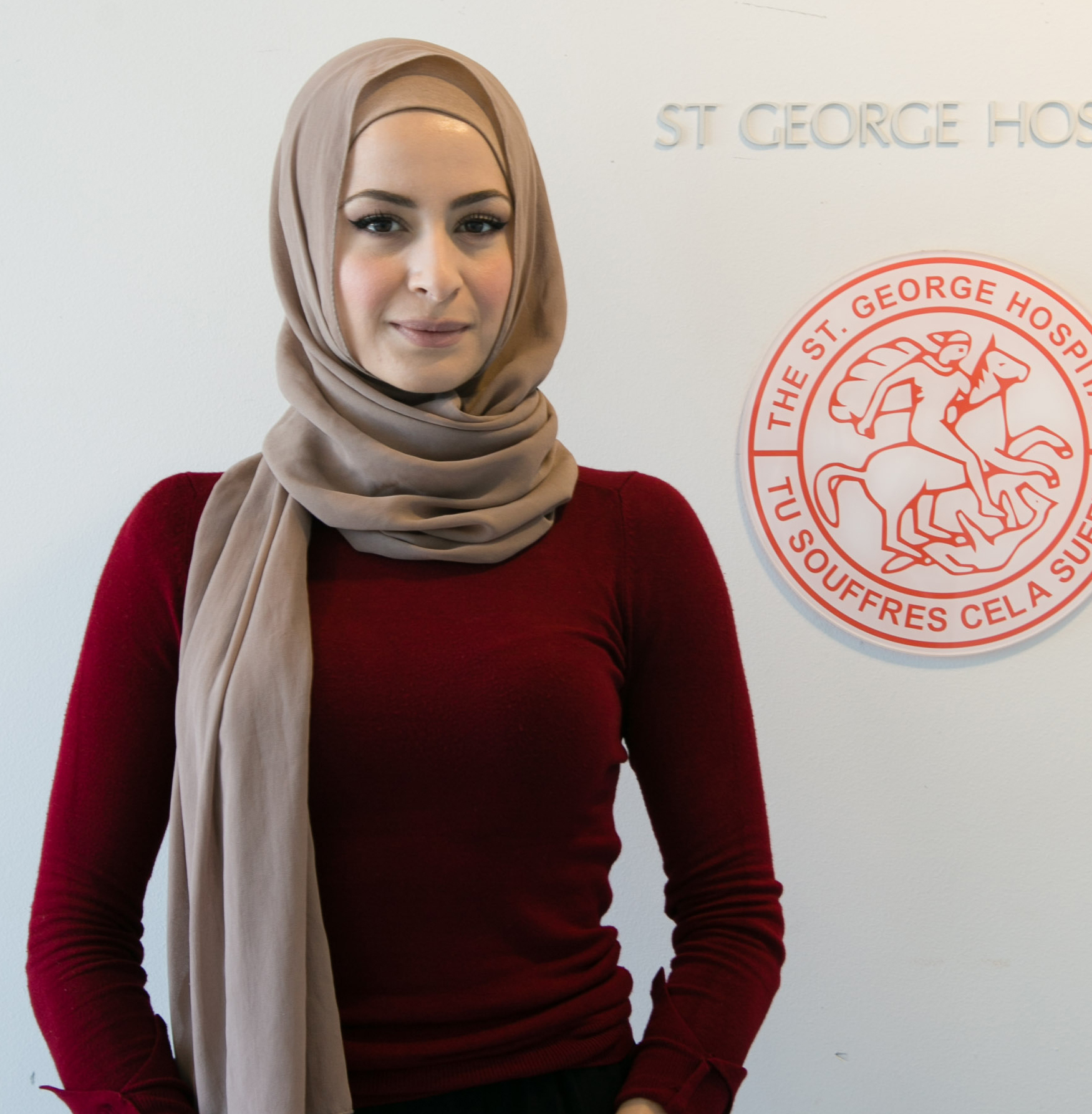
Fields of Research (FoR)
Pathology, Medical Microbiology, Immunology, Infectious DiseasesBiography
Dr Fatima El-Assaad is the Senior Research Associate at UNSW Microbiome Research Centre (MRC) and a former UNSW Vice Chancellor’s Postdoctoral Research Fellow (2015 - 2017). She graduated with First Class Honours in Medical Science and was awarded her PhD in Medicine (by publications) at The University of Sydney (2013) for her work in the field of inflammation, infectious diseases and neuroscience.
Currently, together with the...view more
Dr Fatima El-Assaad is the Senior Research Associate at UNSW Microbiome Research Centre (MRC) and a former UNSW Vice Chancellor’s Postdoctoral Research Fellow (2015 - 2017). She graduated with First Class Honours in Medical Science and was awarded her PhD in Medicine (by publications) at The University of Sydney (2013) for her work in the field of inflammation, infectious diseases and neuroscience.
Currently, together with the director of the MRC, Dr El-Assaad develops and implements various research projects and coordinates the research strategy, communications and interactions with various stakeholders. Her current interests lie in understanding the role of the microbiome in maintaining optimal health and their role various inflammatory diseases. She is leading projects in mental health and neuroscience (schizophrenia, dementia, age-related frailty), women and children’s health (endometriosis, pre-conception and pregnancy health), infectious disease (sepsis) and natural therapies (kefir, honey).
Dr El-Assaad has been involved with several cross-disciplinary consortia between basic science, policy, clinical translation and biotech leadership. She was awarded the prestigious HOPE Award at the 9th HOPE Meeting with Nobel Laureates (2017, Tokyo) and the Campion-Ma-Playoust Memorial Award at the 49th annual ASMR National Conference. She was one of 60 Early-Mid Career Researchers selected for the Theo Murphy High Flyers Think Tank (2016) and one of 3 invited Thinker in Residence at Flinders University (2016), one of 100 global leaders invited to the GAP Summit (2017, Washington DC) and the Nobel Prize Dialogue (2017,Tokyo), one of 14 Australian delegates to participate in the Australian Academy of Technology Sciences & Engineering Australia-China Young Scientists Exchange Program (2017, Beijing) and 1 of 5 Australian delegates Nominated by National Research Foundation, Prime Minister's Office, Singapore to attend the Global Young Scientists Summit (2020, Singapore).
Dr El-Assaad supports her UNSW peers through her positions on:
- UNSW Early Career Academic Network (ECAN) Executive Committee
- UNSW ECAN Faculty of Medicine and Health Sub-Committee
- UNSW MEDIC Equity, Diversity and Inclusion Working Group
My Qualifications
2013 Doctor of Philosophy (Medicine)
- The University of Sydney
- Sydney Medical School, Department of Pathology, Vascular Immunology Unit
- Thesis by Publications: Microparticles, microRNA and cytoadherence in experimental cerebral malaria
- Supervisors: Prof. Georges E. R. Grau and Dr. Valery Combes
2007 Bachelor of Medical Science (HONS) Class I (Pathology)
- The University of Sydney
- Sydney Medical School, Department of Pathology, Vascular Immunology Unit
- Honours thesis: The role of microparticles in the pathogenesis of cerebral malaria
- Undergraduate subjects studied: Advanced Biology, Visceral, Musculoskeletal and Cranial and Cervical Anatomy, Toxicology, Cell Pathology, Microbiology, Physiology and Biochemistry
- Elective options studied: Academic English and Psychology
My Research Supervision
Supervision keywords
Areas of supervision
Our research integrates basic science, bioinformatics, genomics, proteomics and clinical translation to study an extensive range of diseases that fall within national and global health priority areas. Our ultimate vision is to improve the global burden of disease through innovative, translational and collaborative research on the microbiome to drive better patient care and champion “a healthy microbiome for a healthy life”.
- The healthy microbiome
- Healthy Optimal Australian Microbiome (HOAM) study
This study aims to definitely characterise a healthy microbiome across different age cohorts from adolescents to super-aging centenarians to capture the ultimate Australian healthy microbiome signature.
2. Impact of kefir consumption on gut microbiome
This study aims to understand how consumption of kefir changes your gut microbiome.
- The microbiome in endometriosis
Endometriosis is a debilitating gynaecological inflammatory condition that impacts 1 in 9 Australian women. We have several projects available investigating the influence of diet, extracellular vesicles, microbes, inflammation and other gut diseases such as inflammatory bowel disease on the development of endometriosis.
- The microbiome in neuroinflammation and dementia
Dementia affects around 50 million people worldwide and is the second highest cause of death in Australia. This study aims to understand how changes in the microbiome contribute to dementia pathogenesis, as well as the influence of proton-pump inhibitors to exacerbate dementia presentation.
- The MothersBabies Study
This study aims to recruit 2000 women and their partners to investigate the role of the microbiome in pre-conception health, pregnancy and its outcomes, including the health of the babies.
- Skin microbiome in atopic dermatitis
The skin harbours a myriad of unique microbial communities that influence the health of the host. This study aims to understand the relationship between skin microbes and the development of atopic dermatitis.
Location
St George and Sutherland Clinical School
Faculty of Medicine & Health
UNSW SYDNEY 2052
Level 2, Clinical Sciences Building (WR Pitney)
Short Street, St George Hospital, KOGARAH NSW 2217